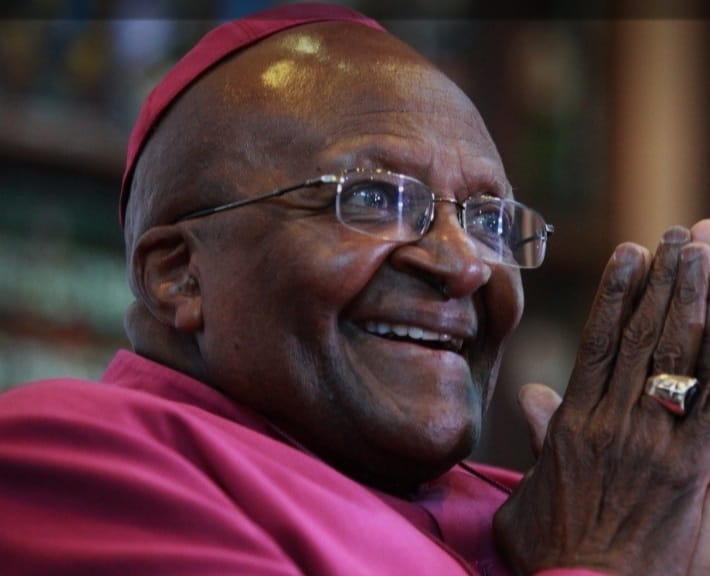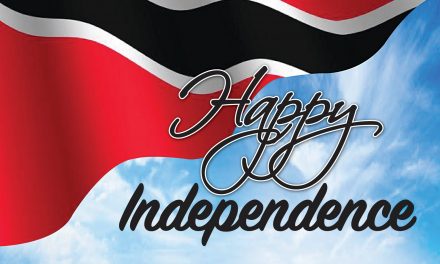Good afternoon.
You no doubt would have noticed the relative brevity of the contributions in the tributes this afternoon, no doubt because of the excellent time management skills of the organisers. But the Archbishop’s long, exemplary and extraordinary life, taken together with the countless wise, kind, inspirited and inspirational words provided much fodder for homage. But how to condense it into a mere five minutes, and especially after such a slew of distinguished speakers who preceded me?
The massive outpouring of sorrow, glowing tributes and fond memories that flowed from every corner of the globe following thedeath of Archbishop Tutu are testament to his lasting influence and legacy, and from all accounts, Archbishop Tutu, ordained an Anglican priest in 1960, lived in consonance with Pauline teachings.
He was through and through a man of peace, reflecting Paul’s advice that “if it is possible, so far as it depends on you, live peaceably with all”. He championed non-violent resistance and the use of economic sanctions in the anti-apartheid movement, even as he fearlessly spoke truth to power. A born peacemaker, he mediated on many occasions betweenopposing factions, once declaring “If you want peace, you don’t talk to your friends. You talk to your enemies.” South Africa’s relatively peaceful transition from decades of brutality and segregation to a multi-racial democracy is testament to the seeds sowed by Archbishop Tutu.
In 1994, when apartheid was dismantled,Archbishop Tutu adhered to Paul’s injunction to the Colossians to “Bear with each other and forgive one another if any of you has a grievance against someone. Forgive as the Lord forgave you.” Tutu led by example, as chairman of the Truth and Reconciliation Commission, collecting testimony documenting the barbaric events of the apartheid era. He was not interested in retribution or revenge, but sought to carve a path forward for all South Africans, fiercely believing that “without forgiveness, there’s no future”
We can be assured that all he did was done in love, his expressed belief being that “If we don’t love, we will be like plants without water.” The plaudits given by those who knew him best all point to an individual who not only loved his family but also embodied the Corinthian principles of love—a man patient, kind; not envious, boastful, arrogant or rude; not easily angered, nor keeping a record of wrongs. A man who bore, believed, hoped and endured all things. Among his many acts of love, was risking his own life in 1981 to physically protect a man about to be executed by a mob.
As a man of faith, Archbishop Tutu walked the walk as he talked the talk. Even in his darkest days he stepped out of South Africa’s grim reality and into the realm of faith, assured of the things he hoped for, convinced of things he had not yet seen. He astutely foretold Nelson Mandela’s election as president more than 14 years before it came to pass, and kept alive the flames of hope and faith until his prophecy was fulfilled.
Above all else, Archbishop Tutu desired unity for his native land and for the world, that all would follow Paul’s advice to the Romans to ‘live in harmony with one another’. He worked tirelessly well into his retirement from public life at bridging a critical gap between black and white, rich and poor, powerful and disempowered, and advancing the issues of equality and fairness. He once said, “We can be prosperous only together, we can survive only together. We can be human only together.” Echoes of our own national motto, ‘Together we aspire, together we achieve’.
We in Trinidad and Tobago were blessed to have been the beneficiaries of some of his pearls of wisdom during his visits here in 1976, 1987 and 2004.
During one of those calls, he extended South Africa’s ‘rainbow nation’ designation to us in homage to our rich diversity. We would honour his memory if we could come to a place of unity and maturity and as Tutu stated in one of his celebrated works, “agree to disagree and yet continue to love one another, to care for one another, and cherish one another and seek the greater good of the other”.
Desmond Tutu lived an exemplary life and in it we find abundant examples from which to pattern our own lives, enough to inspire many generations to come.
He fought the good fight, he finished the race, he kept the faith. May he rest in eternal peace.







